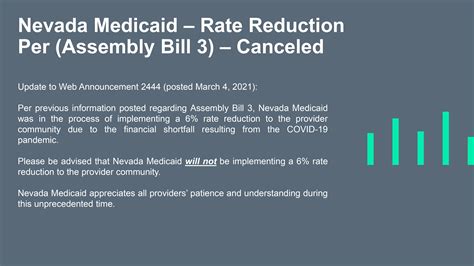When it comes to securing financial assistance for long-term care through Medicaid, one of the most frequently asked questions is, “Does Medicaid check your bank account?” This query arises from concerns about maintaining privacy and retaining control over personal assets. In this comprehensive article, we’ll dive deep into the intricacies of Medicaid’s asset verification process, providing you with a clear understanding of what to expect and how to navigate the system effectively.
The Importance of Asset Verification
Medicaid is a means-tested program, which means that eligibility is determined by an individual’s financial resources. To ensure that limited funds are distributed fairly and to those who truly need assistance, Medicaid must verify the accuracy of the information provided on applications. This includes scrutinizing an applicant’s income, assets, and overall financial standing.
Checking Bank Accounts: Yes, It’s a Requirement
The simple answer to the question “Does Medicaid check your bank account?” is a resounding yes. When you apply for Medicaid benefits, you will be required to provide bank statements as part of the application process. This is because Medicaid has strict financial eligibility requirements, and the applicant must provide supporting documentation of their income and assets.
As of 2022, generally speaking, an elderly applicant applying for long-term care is limited to $2,523 per month in income and $2,000 in countable assets. However, it’s important to note that these thresholds can vary by state, so it’s crucial to familiarize yourself with the specific guidelines in your area.
The Asset Verification Process
During the application process, Medicaid will request bank statements for various accounts, including checking, savings, and any other financial accounts you may hold. This is to ensure that you are accurately reporting your assets and that you meet the eligibility criteria.
It’s worth noting that Medicaid does not have direct access to your bank accounts. Instead, they rely on the documentation you provide to verify your financial status. Failure to provide accurate and complete information can result in denial of benefits or, in some cases, legal consequences for fraud.
Maintaining Eligibility: Ongoing Responsibility
Once approved for Medicaid, it becomes the responsibility of the recipient to maintain financial eligibility. This means notifying the Medicaid agency if your financial circumstances change. For example, if you receive an inheritance, it may put you over Medicaid’s asset limit, and it is your obligation to report it.
Medicaid has a zero-tolerance policy for individuals who take advantage of the system. If it is discovered that a Medicaid recipient’s financial circumstances have changed, and they no longer meet the requirements, Medicaid eligibility will not only be withdrawn but the agency may also demand repayment for services and benefits paid during the timeframe in which the individual was technically ineligible.
While Medicaid agencies do not have independent access to your financial statements, they do conduct annual reviews to ensure that recipients still meet the financial eligibility requirements. Additionally, Medicaid can request bank statements at any time, not just during the annual review.
The Importance of Honesty and Transparency
Throughout the Medicaid application process and beyond, it is imperative to be completely honest and transparent about your financial situation. Attempting to conceal assets or income through any illegal means is not only unethical but also carries severe consequences if discovered.
Remember, Medicaid is a vital resource for those in need of long-term care, and the program’s integrity relies on the truthfulness of its participants. Playing by the rules and being upfront about your financial circumstances is not only the right thing to do but also ensures that you avoid potential legal repercussions and maintain your eligibility for much-needed benefits.
The Role of Medicaid Planning Professionals
Given the complexities of Medicaid’s asset verification process and the potential consequences of non-compliance, it is highly recommended to seek the assistance of experienced Medicaid planning professionals. These experts can guide you through the intricate rules and regulations, ensuring that you navigate the process correctly and explore all available options for protecting your assets while still qualifying for benefits.
Medicaid planning attorneys and certified Medicaid planners can help you understand the specific eligibility requirements in your state, develop strategies for asset protection (such as trusts or annuities), and ensure that you provide accurate and complete documentation during the application process.
Conclusion
In conclusion, the answer to the question “Does Medicaid check your bank account?” is a resounding yes. Medicaid takes asset verification seriously, requiring applicants to provide bank statements and other financial documentation to ensure eligibility. While this process may seem invasive, it is essential for maintaining the integrity of the program and ensuring that limited resources are allocated to those who truly need them.
However, it’s crucial to remember that Medicaid’s asset verification process is not designed to strip you of your hard-earned assets. With proper planning and guidance from experienced professionals, you can navigate the system effectively while protecting your assets and securing the long-term care benefits you need.
By being honest, transparent, and proactive in your approach, you can increase your chances of a successful Medicaid application and gain peace of mind knowing that your financial future is secure. Remember, seeking professional assistance can make all the difference in ensuring a smooth and stress-free experience throughout the Medicaid application and eligibility process.
Does medical check your bank account?
FAQ
Does Medi-Cal check your bank account?
Does Medicare look at your bank account?
Can Medicaid take money out of your bank account reddit?
What assets are exempt from Medicaid in KY?

